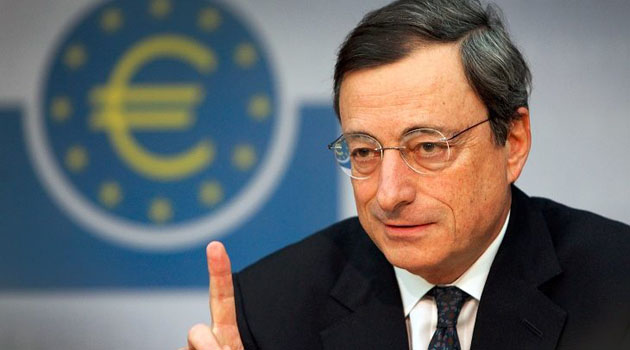ECB Head Draghi: Trade Protectionism is Main Risk to Economy

European Central Bank head Mario Draghi says that new trade barriers are the main risk to Europe’s economy and that it’s up to the EU to “lead by example” by supporting economic openness and reforming its institutions.
Draghi told the European parliament Monday that the bank had decided to phase out its 2.4 trillion-euro ($2.8 trillion), three-year stimulus program at year-end because inflation is finally trending in line with the ECB’s goal of just under 2 percent. Along with that, economic growth has created 8.4 million jobs since mid-2013.
The risks now “mainly relate to the threat of increased protectionism,” he said.
U.S. President Donald Trump has imposed tariffs on steel and aluminum imports and on a range of Chinese goods, leading to retaliation from China, the EU and others. Trump’s moves have emphasized national interest and country-to-country deals, instead of putting trade issues in international, rules-based frameworks such as the World Trade Organization.
Draghi said that “a strong and united European Union can help reap the benefits of economic openness while protecting its citizens against unchecked globalization.”
“In leading by example, the EU can lend support to multilateralism and global trade, which have been cornerstones of growing economic prosperity over the past seven decades,” he said.
Draghi said that in order to accomplish that EU would have to strengthen its own institutions, including the setup of the 19-country euro currency. Draghi urged risk-sharing measures such as EU-level deposit insurance that would reassure depositors their savings would be safe even if their country ran into financial trouble.
He said that sharing financial risk between eurozone countries could strengthen the system, which should ease the concerns of bigger, richer countries like Germany that they could be exposed to the weaknesses of poorer states. He cited the work of the U.S. Federal Deposit Insurance Corporation. With its backstop from the U.S. federal government, the FDIC could wind up 500 troubled banks without causing financial instability. The corresponding number of shaky banks purged from the system in the eurozone was ten times lower — another reason the region’s banking sector still faces difficulties.
courtesy : abcnews.go.com
photo : LeapRate
[social_warfare buttons = “Facebook, Pinterest, LinkedIn, Twitter, Total”]



